The Ultimate Guide To Buying Summer Tires: Enhance Your Summer Driving Experience
Posted by Hunt Parts on
As the temperature rises, and the sun shines bright, it's time to prepare for summer driving. Whether you're planning a road trip, commuting to work, or simply enjoying the warm weather, having the right summer tires on your vehicle is essential for a safe and enjoyable driving experience. Summer tires are designed to perform optimally in warm weather conditions, offering superior traction, handling, and braking on hot and dry roads. In this comprehensive guide, we'll walk you through everything you need to know about buying summer tires to make an informed decision for your car.
What Are Summer Tires?
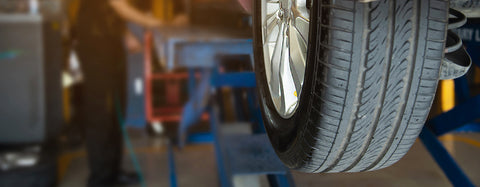
Summer tires, also known as performance tires or sport tires, are a type of tire specially engineered for warm weather driving. Unlike all-season or winter tires, which are designed to handle various weather conditions, summer tires are optimized for hot temperatures and dry road surfaces. These tires offer several key advantages that make them the ideal choice for the summer months:
Tread Pattern: Summer tires feature a tread pattern with shallower grooves and larger tread blocks, maximizing surface contact with the road and enhancing grip.
Rubber Compound: The rubber compound used in summer tires is softer, providing better traction on hot pavement. This softness, however, also means they may wear out faster than all-season tires.
Handling and Cornering: Summer tires offer excellent cornering and handling capabilities, allowing for precise steering response and stability during aggressive driving.
Braking Performance: They boast superior braking performance on dry and wet surfaces, thanks to their enhanced grip and tread design.
Heat Resistance: Summer tires are engineered to withstand high temperatures, reducing the risk of tire blowouts during hot weather conditions.
When Should You Use Summer Tires?
The transition to summer tires depends on your location and local climate. As a general rule of thumb, it's recommended to switch to summer tires when the average temperature rises above 7°C (45°F) consistently. At this point, all-season or winter tires may start to lose their performance, and summer tires become the more suitable option.
Summer tires are perfect for:
Warm Weather Conditions: They perform exceptionally well on hot, dry roads and in wet conditions.
Summer Road Trips: If you plan to take long road trips during the summer months, summer tires will enhance your driving experience by providing better handling and comfort.
Performance-Oriented Driving: If you enjoy spirited driving, track days, or sports car driving, summer tires are a must-have due to their superior performance characteristics.
High-Performance Vehicles: If you own a high-performance vehicle, summer tires are often the recommended choice to complement your car's capabilities.
Factors to Consider When Buying Summer Tires
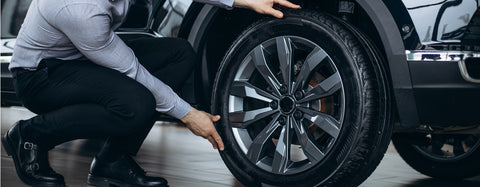
Purchasing summer tires involves more than just selecting the first option you come across. Several crucial factors should be taken into account to ensure you get the right set of tires for your specific needs. Let's explore these factors in detail:
- Tire Size and Compatibility
The first step is to identify the correct tire size and specifications for your vehicle. This information can be found in your car's owner's manual or on the placard located on the driver's side door jamb. Ensure that the summer tires you are considering match these specifications to maintain proper fitment and performance. Using the wrong tire size can negatively impact your car's handling and safety.
- Performance Ratings
Summer tires come in various performance categories, ranging from standard performance to ultra-high performance. The performance rating is denoted by a letter, usually found on the tire's sidewall (e.g., H, V, W, Y). Higher performance ratings generally indicate better grip and handling but may come with a trade-off in terms of ride comfort and tread life. Consider your driving style and needs to select the appropriate performance rating.
- Tread Pattern and Design
Different summer tires have varying tread patterns optimized for specific purposes. Some tires prioritize dry grip and cornering ability, while others focus on wet traction and hydroplaning resistance. If you live in an area prone to heavy summer rains, opt for summer tires with efficient water evacuation channels. Additionally, consider the noise level generated by the tire's tread pattern, as some performance tires can be louder than standard tires.
- Tread Life and Durability
The softer rubber compound used in summer tires, while enhancing grip, may lead to faster wear. Look for tires with a good treadwear rating to ensure they last longer. It's essential to strike a balance between performance and longevity based on your driving habits and mileage expectations. Keep in mind that high-performance summer tires may have a shorter tread life compared to standard summer tires.
- Driving Conditions
Consider the typical driving conditions you'll encounter during the summer. If you live in an area with extreme heat or experience particularly aggressive driving, choose tires known for their heat resistance and high-speed capabilities. Additionally, if you plan to drive in wet conditions, prioritize summer tires with good wet traction and braking performance.
- Branding and Reputation
Stick to reputable tire brands known for their quality and performance. Well-established brands often invest significantly in research and development, ensuring their tires meet safety and performance standards. Read reviews and seek recommendations from other drivers or automotive experts to gauge the performance and reliability of the tires you're considering.
- Price and Warranty
Price is an important consideration, but don't compromise quality for a lower cost. Invest in high-quality summer tires, as they are critical for your safety and driving experience. Keep in mind that premium tires may come with a higher price tag, but they often offer better performance, durability, and safety features. Additionally, check the warranty provided by the manufacturer, as it can vary depending on the brand and tire model.
- Professional Installation
Once you've selected the right summer tires, ensure they are professionally installed by a reputable tire shop or service center. Proper installation is crucial for optimal performance and safety. Additionally, make sure the tires are balanced and aligned correctly to avoid premature wear and ensure even tire wear over time.
The Different Types of Summer Tires
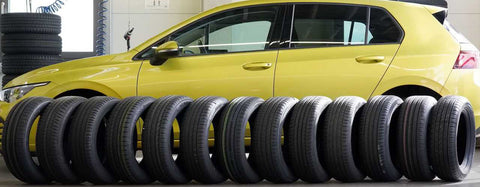
Summer tires come in various types, each offering specific benefits and performance characteristics. Here are some of the common types of summer tires:
- Standard Summer Tires
Standard summer tires are designed to provide good all-around performance for everyday driving in warm weather conditions. They offer a good balance of grip, handling, and tread life, making them suitable for a wide range of vehicles, from sedans to SUVs. If you're looking for a reliable set of summer tires without the need for extreme performance, standard summer tires are a practical choice.
- Performance Summer Tires
Performance summer tires are engineered for drivers who seek enhanced cornering capabilities, precise steering response, and improved grip. These tires are ideal for sporty driving and enthusiasts who want to maximize their car's performance during spirited drives. Performance summer tires often have a more aggressive tread pattern and a softer rubber compound, which may lead to shorter tread life.
- Ultra-High Performance (UHP) Tires
Ultra-high performance (UHP) tires take performance to the next level, offering even better grip and handling than standard performance summer tires. They are commonly found on high-performance vehicles and sports cars. UHP tires are designed for drivers who demand the ultimate in performance and are willing to accept trade-offs in terms of ride comfort and tread life.
- Track and Competition Tires
Track and competition tires are designed for racing and track use. They prioritize maximum grip and cornering capabilities on dry surfaces but may not perform as well in wet conditions. These tires are not recommended for regular street use due to their minimal tread depth and aggressive tread pattern, which can lead to reduced wet traction and hydroplaning.
- Touring Summer Tires
Touring summer tires are designed to provide a comfortable and quiet ride while still offering reliable performance in warm weather conditions. They are well-suited for long-distance driving and road trips. Touring summer tires strike a balance between all-season comfort and summer performance, making them a popular choice for drivers seeking a smooth and enjoyable driving experience.
Understanding Summer Tire Labels and Ratings

When shopping for summer tires, you'll come across various labels and ratings that provide important information about the tire's performance and characteristics. Understanding these labels will help you make an informed decision and select the best tires for your needs.
- Tire Size and Type
The tire size is denoted by a series of numbers and letters printed on the sidewall of the tire. It provides information about the tire's width, aspect ratio, construction type, and diameter. For example, a common tire size may be labeled as P215/55R16, where "P" indicates a passenger tire, "215" is the tire width in millimeters, "55" is the aspect ratio (the tire's height as a percentage of its width), and "R16" denotes a radial tire with a 16-inch diameter.
- Treadwear Rating
The treadwear rating is a three-digit number on the tire sidewall, indicating the tire's expected tread life compared to a reference tire. A higher treadwear rating means the tire is expected to last longer, but it may come with a trade-off in terms of performance. The treadwear rating is not a standardized measure across different tire manufacturers, so it's essential to use it as a general guideline and consider other factors like tire type and driving conditions.
- Traction and Temperature Ratings
The traction rating indicates the tire's ability to stop on wet pavement. It is denoted by letters "AA," "A," "B," or "C," with "AA" being the highest rating. A higher traction rating means better wet grip. The temperature rating indicates the tire's ability to dissipate heat under heavy loads and high-speed conditions. It is denoted by letters "A," "B," or "C," with "A" being the highest rating. For summer tires, you should aim for "A" in both traction and temperature ratings.
- UTQG Rating
The Uniform Tire Quality Grade (UTQG) rating provides information about the tire's treadwear, traction, and temperature performance. It is denoted by a series of three numbers (e.g., 500) followed by two letters (e.g., A A). The first number represents the treadwear rating, and the two letters represent the traction and temperature ratings, respectively. Keep in mind that UTQG ratings are assigned by the tire manufacturer and may not always provide an accurate comparison between different brands.
Popular Summer Tire Brands
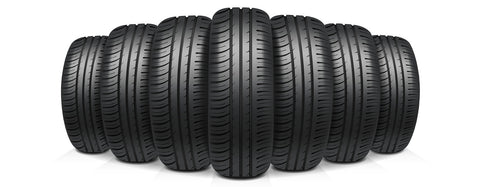
When it comes to choosing the right summer tires, the brand plays a crucial role in determining the tire's quality, performance, and reliability. Here are some of the most popular and reputable summer tire brands:
- Michelin
Michelin is one of the most renowned tire manufacturers globally, known for producing high-quality and long-lasting tires. They offer a wide range of summer tires, from standard performance to ultra-high performance options.
- Bridgestone
Bridgestone is another well-respected tire brand with a strong presence in the summer tire market. They offer a variety of summer tires designed for different driving needs and preferences.
- Continental
Continental is a trusted name in the tire industry, providing reliable and high-performance summer tires. Their tires are known for their excellent grip and handling capabilities.
- Pirelli
Pirelli is synonymous with high-performance tires and is a popular choice among sports car enthusiasts. Their summer tire lineup includes options for various vehicles and driving styles.
- Dunlop
Dunlop, a subsidiary of Goodyear, focuses on performance-oriented tires. They are known for their sporty summer tire offerings that provide excellent handling and grip.
Tire Maintenance and Care Tips
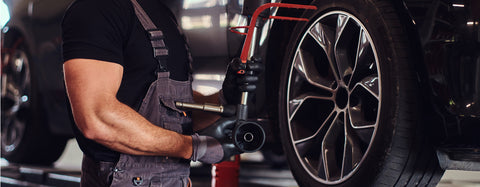
Proper maintenance and care are essential to get the most out of your summer tires and ensure your safety on the road. Here are some tire maintenance tips to keep in mind:
- Regularly Check Tire Pressure
Ensure that your summer tires are inflated to the recommended pressure as indicated in your car's owner's manual or the tire placard. Proper tire pressure improves fuel efficiency, tire life, and overall performance.
- Alignment and Balancing
Get your tires professionally aligned and balanced to avoid premature and uneven tire wear. Proper alignment and balancing also improve your car's handling and stability.
- Inspect Tread Depth
Monitor the tread depth of your summer tires regularly. A tread depth gauge can help you determine if it's time for a tire replacement. In many regions, the legal minimum tread depth is around 1.6 mm (2/32 inch) for summer tires, but it's recommended to replace tires before reaching this limit for improved safety.
- Avoid Overloading Your Vehicle
Avoid exceeding your vehicle's load capacity, as it can put excessive stress on your summer tires, leading to accelerated wear and reduced performance.
Conclusion
Choosing the right summer tires is essential for your safety, driving experience, and vehicle performance during the warmer months. By considering factors such as tire size, performance ratings, tread pattern, and driving conditions, you can make an informed decision that suits your needs. Whether you opt for standard performance tires for everyday driving or high-performance tires for spirited driving, selecting reputable brands and maintaining your tires properly will ensure a smooth and enjoyable summer driving experience. Take the time to research and invest in high-quality summer tires to enhance your vehicle's performance and maximize your safety on the road. Happy driving!
Share this post
0 comment

